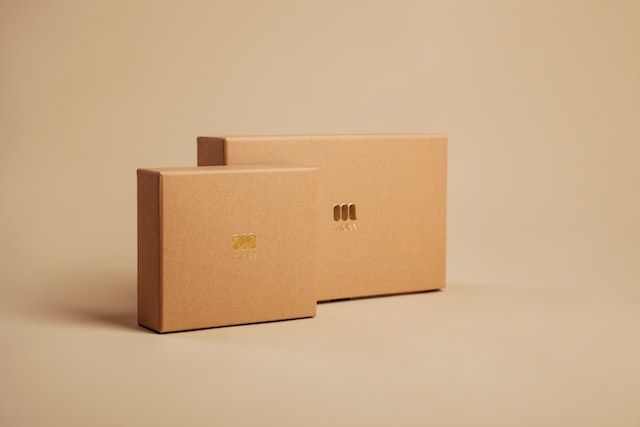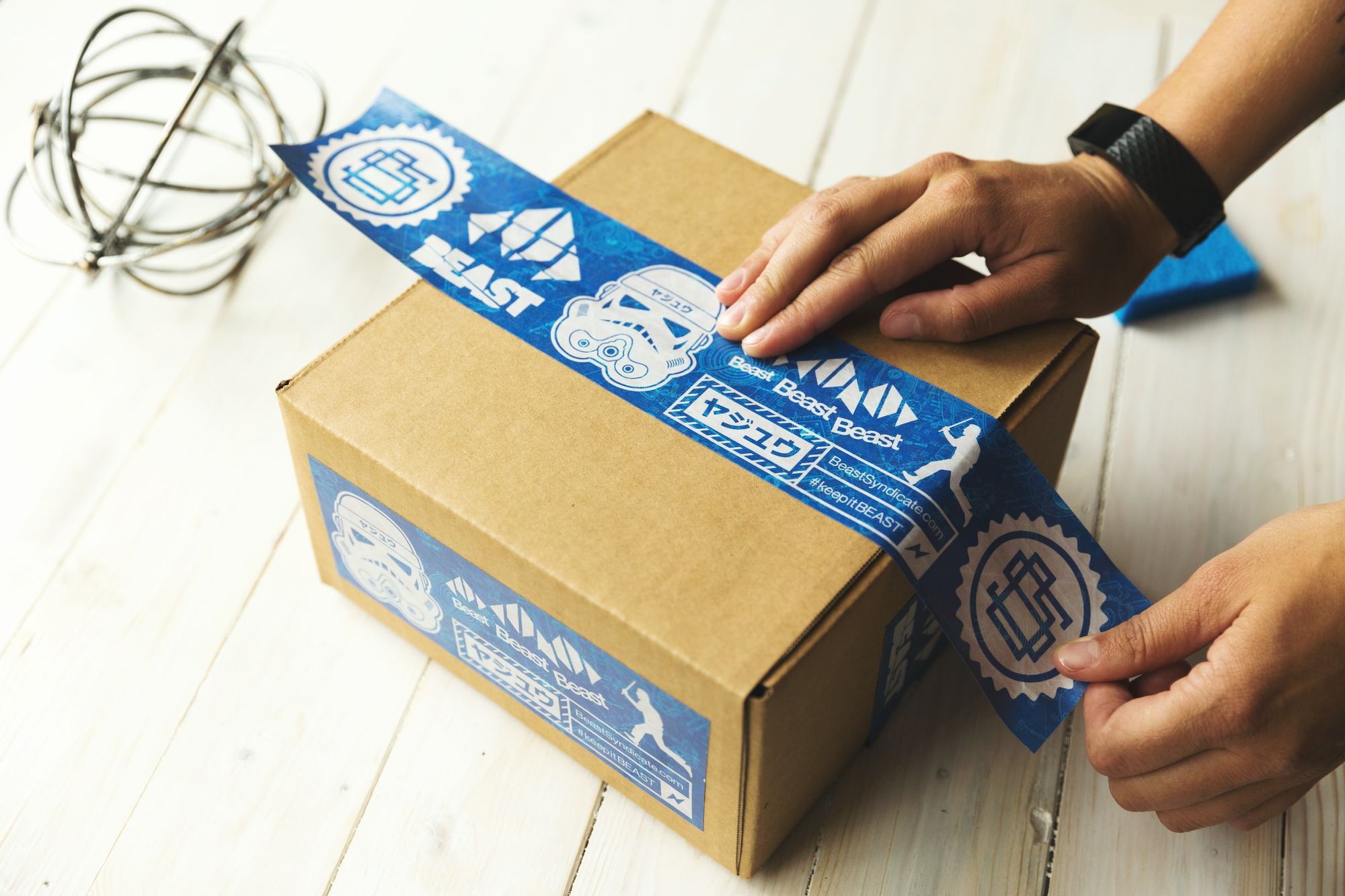Perhaps you're starting a brand-new, exciting business and want to sell your product.
Your business is well established and you're looking for ways to improve the productivity of your packaging and production processes.
In any case, the way your product is packaged plays a critical role in the success of your entire business. You've been looking into setting up a packing line. You are also doing research on the many types of packaging supplies and equipment.
This leads to our today’s guide that is contract packaging. Before we delve into details, let’s take a look at the table of content:
- Contract Packaging: What is it?
- What is Contract Manufacturing?
- Difference between Contract Packaging and Contract Manufacturing?
- Contract Packaging Process Overview
- Different Types of Contract Packaging
- When to Employ Contract Packaging Services?
- When to Consider about Packaging Inside the Business?
- Simple Formula to Determine Contract Packaging Service
- Various Forms of Contract Packaging Services
- Frequently Asked Questions (FAQs) Associated with Contract Packaging
- How Deskera Can Assist You?
- Final Takeaways
Let's Start!
Contract Packaging: What is it?
Contract packaging, also known as co-packaging, is a service whereby a manufacturer contracts out the packaging of their product to a third-party company.
The third-party company provides the necessary packaging equipment, labor, and materials to package the product for the manufacturer.

This type of service is often used by companies that do not have the resources or expertise to package their products in-house. Contract packaging can help reduce costs, streamline production, and increase efficiency.
Contract packaging companies are capable and knowledgeable enough to handle every aspect of your supply chain needs. By outsourcing the packaging process, your company can save money by avoiding the need to purchase an extensive amount of expensive packaging supplies and equipment.
Contract packaging also covers the purchase, upkeep, and utilisation of the proper packaging supplies and equipment for your goods. In terms of outsourcing all of these business dynamics, it is effectively a turn-key solution.
What is Contract Manufacturing?
Contract manufacturing is a type of manufacturing in which companies hire other companies to produce components of a product or to assemble and finish a product. It is a type of outsourcing that involves hiring a third-party manufacturer to produce goods on the company's behalf.
The third-party manufacturer is responsible for overseeing all aspects of production from raw material sourcing to assembly and shipment of the final product.
Difference between Contract Packaging and Contract Manufacturing?
Contract packaging is a service that provides packagers with the materials and expertise required to package a product. Additionally, contract packaging usually involves putting products into boxes, envelopes, shrink-wrapping, or any other form of packaging.
Contract manufacturers are companies that provide the materials and expertise to manufacture a product. Furthermore, contract manufacturing typically involves the production of components and parts, assembly of those components and parts, and the integration of the finished product.
Contract Packaging Process Overview
Depending on the product, each packaging project has a distinct scope and level of complexity. To create packaging that is appropriate for the brand and the product, Chief product officers (CPOs) work closely with product managers and suppliers.
Processes are chosen after consultation between the companies. There are typically six steps involved in this:
Phase One: Design
The majority of CPOs work in design teams. This enables them to create distinctive packaging for clients and use prototypes to address any design-related problems.
Phase Two: Inventory Management
In phase two comes the inventory management. Here, every shipment of goods, regardless of whether it includes packaging prototypes, must go through an audit and be securely preserved.
Phase Three: Printing Components
Usually, the product is provided with the artwork that needs to be printed on the package parts.
Phase Four: Production of Packaging Elements
During this phase, the package's components are created. Making trays, blister packs, clamshells, and other parts can fall under this category.
Phase Five: Assembly
At this moment, a product is truly packed. It could be a challenging process. In order to preserve the quality and condition of each product, packaging must be done in a specific order. Stickers, discounts, guides, and other add-on materials must be securely fastened or fitted.
Phase Six: Storage
Before being delivered to a retailer, the packaged item needs to be stored (or another storage location). Certain products may require certain storage conditions, including lighting and temperature. Because of this, some CPOs concentrate on specific product groups, including pharmaceuticals industry.
Different Types of Contract Packaging
Contract packing services span widely, from package design to product transportation. Contractors in packaging can provide a variety of services that includes:

Packaging Testing
Testing the packaging will ensure that the product reaches its destination safely. The effectiveness and quality of the packaging created, whether by the contract packager or the employing firm, are ensured through standard or specialized testing procedures.
Packaging Design
The packaging's design is crucial for both item safety and brand promotion. It is important no matter if a product is being shipped directly to the customer or to a retail outlet.
As part of the contract packaging process, anything from brand images to package measurements for customized and branded packaging can be developed.
Product Packaging
The contract packaging business' primary concentration is on product packaging. This covers a variety of different operations in addition to the basic physical assembling and packing tasks.
Clamshell packaging, shrink wrapping, and filling are some specific types of product packaging. A uniform plastic blister is heat-sealed to printed cardboard as part of blister packing. Flow wrapping entails covering a product with a barrier.
Shipping Services
While most contract packagers prepare, ship, and deliver a packed product to its final location wherever it may be, contract packing occasionally only entails packaging, leaving the transportation to the employing organization. They might also offer package tracking in addition to mailing the item.
Labeling Services
Labeling services are usually a part of the shipping process, even if they can be done separately. Transportation and production of consumer goods necessitate strict inventory control, which labelling helps to achieve.
Radio frequency identification (RFID) tagging, and barcoding are the two primary categories of contract labelling services. A simple set of thin and wide lines are added by the packager as barcodes, which are rapidly and easily readable by warehouse or checkout equipment at a retail outlet. On the box of every product is a unique bar code that carries information about the item, such as the price and product category.
The majority of the time, shipping containers are equipped with RFID tags, but they can also be used to identify specific products. Real-time product tracking is made possible by RFIDs, allowing customers or retailers to follow a product's journey right after it leaves the warehouse.
When to Employ Contract Packaging Services?
When hiring a contract packager is less expensive and more efficient than packing the product themselves, a manufacturer will frequently do so.
Due of their focus on packaging, contract packagers also bring highly specialized knowledge to the table. A contract packager can help a small business that is growing swiftly improve packaging and production more rapidly than they could on their own without making a significant investment and reorganizing.
In the same manner, a major global corporation may find that outsourcing its packaging is easier and more efficient, freeing them up to focus on other matters.
The following are some of the reasons why a business should consider working with a co-packer, according to the Contract Packaging Association:
- There is no access to tools or expertise needed for a particular task within.
- Not able to afford to buy your own packing supplies
- Geographically distant facilities could better serve the commodities for nationwide distribution
- Packaging that is unusual, necessitates specialized tools, or requires a lot of work is indicated.
- Sending items in bulk to a distant market rather than packaging them locally may be more economical.
- Pressing demand that can be better fulfilled with specialized knowledge or equipment that you don't have
- The use of internal resources is prioritized higher for another reason.
- Before being widely distributed, a new product or packaging needs to be tested.
- The business must make significant investments to comply with regulatory standards.
When to Consider about Packaging Inside the Business?
Small and large enterprises alike regularly choose to internally package their products. Local packaging usually has a greater initial cost, but if the machinery is paid off, there may be a considerable long-term return on investment.
The only continuous expenses will be for paying machine operators and technicians, replacing wear components, and maintaining the machinery.
Additionally, a corporation may receive particular tax advantages from the purchase and depreciation of capital equipment.
Many business owners believe that having complete control over all facets of the production of their products, from sourcing to packing to delivery, makes them somewhat happier. Having the internal capabilities and resources to manage your entire production process
You may depend less on external suppliers and uncontrollable forces when you know you have the option to package your items internally in the event of supply chain issues and disruptions on the global market.
There are many reasons a business would choose to buy capital packaging equipment to package its products internally:
- It would be difficult to communicate the necessity to a third party because it is ambiguous.
- Desire to vertically integrate and manage your supply chain under one management group
- The company is not set up financially or organizationally to implement a contract packager's suggestions.
- You think one that you think is no longer recoverable will be saved by the project packager.
- Desire to monitor, supervise, and manage every aspect of manufacturing domestically while reducing the ongoing costs of outsourcing your packaging
- Reduce shipping and handling shrinkage as well as freight costs using internal resources that can do the job successfully.
- A solid core product line that is homogenous, doesn't need a lot of packing equipment, and is durable.
Simple Formula to Determine Contract Packaging Service
The fact is, there isn't a simple formula you can use to determine whether you should perform your own packaging or use outside packaging services. There are advantages and disadvantages to each choice; neither is fundamentally better than the other.
It must be a well-considered choice that is assessed essentially case-by-case.
Some companies decide to combine the two strategies, outsourcing the packaging of both their main product and their more specialized or promotional goods.
Various Forms of Contract Packaging Services
Different CPOs offer various services. Working with a company that can completely satisfy the requirements for your product is essential if you're a manufacturer.
- Primary Packaging: Includes coming into contact with the item directly (e.g., liquid, powder)
- Secondary Packaging: After the initial packaging is done, packaging is included.
- Co-Packer: Includes primary and/or secondary packaging as well as some degree of production.
- Hand Assembly: Includes manual packing assembly (such as glueing, folding, and fulfilment) to build point-of-purchase setups, gift boxes, and other similar arrangements.
- Rigid Bottle Filler: Putting the product in bottles and other hard containers, capping them, and getting everything ready for shipping
This is an overview of the complex work that CPOs do. Delivering the items to retail outlets in a safe and attractive package is the constant goal. CPOs, like manufacturers, must be able to identify their products all the way back to the smallest item that can be sold.
Frequently Asked Questions (FAQs) Associated with Contract Packaging
Following we have discussed some crucial frequently asked questions (FAQs) associated with contract packaging. Let’s learn:
Que 1: Why Work with a Co-Packer?
Ans: A co-packer should provide staff, equipment, shipping and receiving, and thought leadership in order to properly meet your supply chain demands. To sell your product like a rock star is the co-objective of the packer.
You may focus on your company's primary responsibilities by not having to spend as much time, money, or effort on how your product will be packaged and shipped.
Several factors may warrant outsourcing your supply chain. Cost savings, improved packaging, skilled operation, and packaging line optimization are a few of these. Another advantage is the benefit of continuing to improve key performance indicators.
Que 2: How to Approach and Build a Relationship with a Contract Packaging Company?
Ans: Are you thinking about engaging a contract packaging business to take care of your supply chain requirements? If yes, then you should look into a few businesses that provide these services. A co-packer close to your house can be a nice idea.
The quickest material lead times and the least amount of downtime for repairs will be ensured by doing this. Additionally, it will improve convenience for all business operations.
Request a visit from a representative from each company you are considering evaluating your current packaging configuration. With this knowledge, they will be able to inspect your goods, packing, and significant related items.
A minimum of three to four contract packaging companies should be asked for bids. The next action is to assess every offer. Choose the service that best satisfies your objectives and budgetary restrictions. You can then contact their agents after that. Lastly, schedule a meeting to launch the buying process.
Que 3: Who Wouldn't Fit Well with a Co-Packer?
Ans: Consider how well you are currently managing your own supply chain. Your workforce, resources, and tools are all easy to manage. In this case, a co-packer is probably not necessary.
You could make this determination by examining the infrastructure of your present supply chain. If you can find ways to save money and time, a co-packer arrangement can make sense. If not, working with a co-packer won't likely be beneficial to you.
Que 4: Who Can Work Effectively with a Co-Packer?
Ans: To run your own packaging plant, you must purchase and utilize packaging equipment. You'll also need the necessary workforce and operating infrastructure. Businesses that lack the resources to control every part of their own supply chain due to the high cost have a great choice in contract packaging.
However, some companies today operate their own packaging plant and supply chain. These companies could wish to outsource both their packaging and supply chain operations. They take this action in order to save time and money. These companies could be great co-packer partners.
How Deskera Can Assist You?
Deskera MRP allows you to closely monitor the manufacturing process. From the bill of materials to the production planning features, the solution helps you stay on top of your game and keep your company's competitive edge.

Deskera ERP and MRP system can help you:
- Manage production plans
- Maintain Bill of Materials
- Generate detailed reports
- Create a custom dashboard
Deskera ERP is a comprehensive system that allows you to maintain inventory, manage suppliers, and track supply chain activity in real-time, as well as streamline a variety of other corporate operations.
Deskera Books enables you to manage your accounts and finances more effectively. Maintain sound accounting practices by automating accounting operations such as billing, invoicing, and payment processing.
Deskera CRM is a strong solution that manages your sales and assists you in closing agreements quickly. It not only allows you to do critical duties such as lead generation via email, but it also provides you with a comprehensive view of your sales funnel.
Deskera People is a simple tool for taking control of your human resource management functions. The technology not only speeds up payroll processing but also allows you to manage all other activities such as overtime, benefits, bonuses, training programs, and much more. This is your chance to grow your business, increase earnings, and improve the efficiency of the entire production process.
Final Takeaways
We've arrived at the last section of this guide. Let's have a look at some of the most important points to remember:
- Contract packaging, also known as co-packaging, is a service whereby a manufacturer contracts out the packaging of their product to a third-party company.
- Contract packaging companies are capable and knowledgeable enough to handle every aspect of your supply chain needs.
- By outsourcing the packaging process, your company can save money by avoiding the need to purchase an extensive amount of expensive packaging supplies and equipment.
- Depending on the product, each packaging project has a distinct scope and level of complexity. To create packaging that is appropriate for the brand and the product, CPOs work closely with product managers and suppliers.
- Testing the packaging will ensure that the product reaches its destination safely. The effectiveness and quality of the packaging created, whether by the contract packager or the employing firm, are ensured through standard or specialised testing procedures.
- Labeling services are usually a part of the shipping process, even if they can be done separately.
- Transportation and production of consumer goods necessitate strict inventory control, which labelling helps to achieve.
- A co-packer should provide staff, equipment, shipping and receiving, and thought leadership in order to properly meet your supply chain demands. To sell your product like a rock star is the co-objective of the packer.
Related Articles












